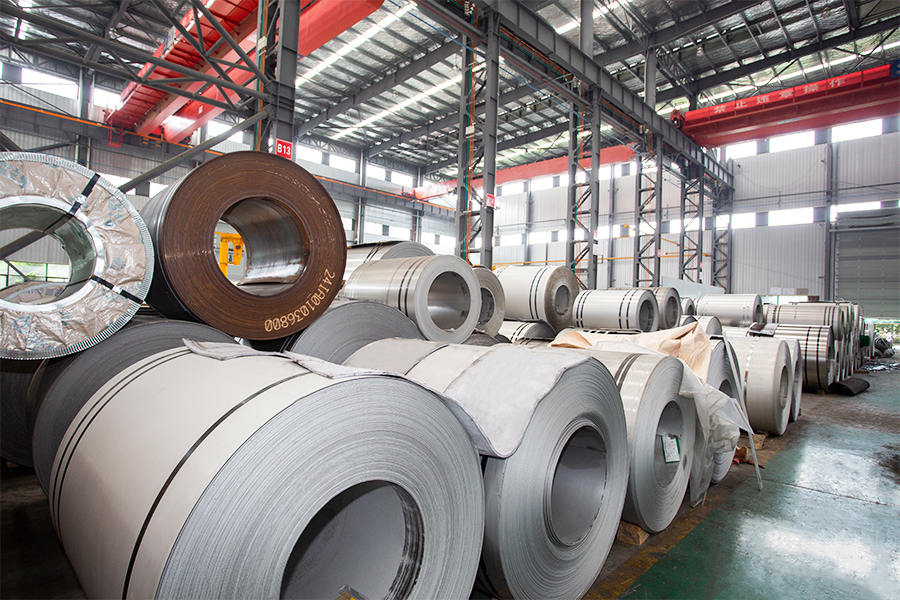Stainless steel coils are a vital component in modern manufacturing, providing durability, strength, and versatility to countless industries. From construction to automotive, food processing to chemical production, stainless steel coils are used in a wide variety of applications. Their resistance to corrosion, high-temperature tolerance, and easy maintenance make them an ideal choice for both everyday items and specialized machinery.
Stainless steel coils are typically processed using cold or hot rolling methods. Cold-rolled stainless steel coils are created at room temperature, which enhances the metal's strength and surface finish. In contrast, hot-rolled coils are made at higher temperatures, offering more flexibility and less precise surface finish but increased workability.
The unique properties of stainless steel coils make them suitable for a wide array of industries, each benefiting from the alloy’s resistance to corrosion, strength, and aesthetic appeal. Here are some of the most common applications:
Stainless steel coils are widely used in construction, where they are turned into roofing, cladding, and siding materials. Their resistance to rust and weathering makes them ideal for buildings exposed to harsh environmental conditions. Stainless steel is also used for reinforcing bars, structural beams, and support systems, adding strength and longevity to infrastructure.

In the automotive industry, stainless steel coils are used for manufacturing various car parts, including exhaust systems, engine components, and structural panels. The ability of stainless steel to withstand high temperatures and corrosion is crucial in maintaining the performance and durability of automotive parts.
The food industry requires materials that are hygienic, easy to clean, and resistant to contamination. Stainless steel coils are commonly used to make food-grade equipment such as tanks, pipes, conveyor belts, and processing machines. Stainless steel’s non-porous surface prevents bacterial growth, making it an ideal material for maintaining food safety.
In the chemical sector, stainless steel coils are used to manufacture storage tanks, pipes, and valves that hold or transport corrosive substances. Their corrosion resistance ensures that the integrity of these systems is maintained, even in harsh environments with chemicals and high temperatures.
Many household appliances, such as refrigerators, ovens, and washing machines, incorporate stainless steel coils for structural and aesthetic purposes. The coils are often used for making the exterior bodies of appliances, thanks to their sleek appearance and ability to resist rust and stains over time.
The energy sector also benefits from stainless steel coils, particularly in the manufacturing of pipes and equipment for oil, gas, and power generation. These coils are resistant to the extreme pressures, temperatures, and chemical exposure found in these industries.
Stainless steel coils provide numerous benefits, making them an essential material in many industries. Some of the most notable advantages include:The primary advantage of stainless steel is its exceptional resistance to corrosion. This makes it ideal for applications in environments where exposure to moisture, chemicals, or high temperatures is common. Whether in outdoor construction, food processing, or the chemical industry, stainless steel’s ability to resist corrosion extends the lifespan of products and systems.
Stainless steel coils are known for their incredible durability. The material is highly resistant to physical wear, impact, and even extreme temperatures. This makes it perfect for use in demanding environments where strength and reliability are critical.
Stainless steel has a polished, shiny surface that makes it attractive in many applications, particularly in industries like construction and appliances. Its appearance can help products maintain a clean and professional look for years, with minimal upkeep needed.
Stainless steel coils re to their resistance to staining and rust. Regular cleaning is often enough to keep stainless steel products looking new and functioning properly. This ease of maintenance is particularly advantageous in sectors like food processing, where hygiene is of utmost importance.
As environmental concerns continue to grow, the recyclability of stainless steel becomes increasingly significant. Stainless steel is 100% recyclable, which helps reduce its environmental footprint. Used stainless steel products can be melted down and repurposed into new products, promoting sustainability.
Stainless steel can withstand extreme temperatures without losing its structural integrity. This makes it ideal for use in industries where heat and cold are factors, such as in the automotive and aerospace sectors.


 English
English русский
русский عربى
عربى 中文简体
中文简体
